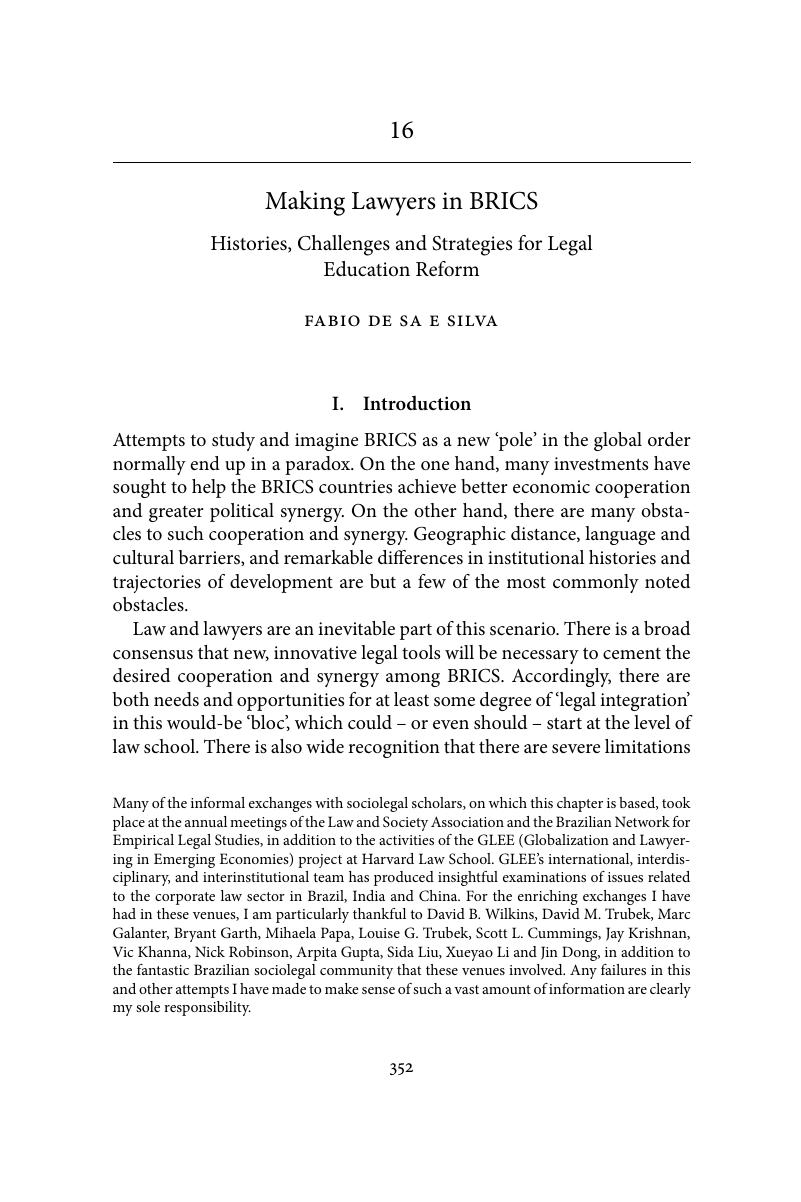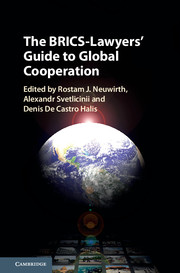Book contents
- The BRICS-Lawyers’ Guide to Global Cooperation
- The BRICS-Lawyers’ Guide to Global Cooperation
- Copyright page
- Dedication
- Contents
- Figures
- Tables
- Contributors
- Acknowledgments
- Frontispiece
- Introduction
- 1 The Enantiosis of BRICS
- 2 Diversity and Intra-BRICS Trade
- 3 Defending Trade Multilateralism
- 4 The BRICS Investment Framework
- 5 China–Africa and the BRICS
- 6 Global Fragmentation of Competition Law and BRICS
- 7 Intellectual Property Negotiations, the BRICS Factor and the Changing North–South Debate
- 8 BRICS in the Emerging Energy Trade Debate
- 9 The BRICS Bank
- 10 The Political Economy Challenges of Financial Regulation in BRICS Economies
- 11 Contract Law in the BRICS Countries
- 12 Consumer Protection Law in the BRICS Countries and Their Future Cooperation
- 13 A Dispute Resolution Centre for the BRICS?
- 14 Legal and Policy Aspects of Space Cooperation in the BRICS Region
- 15 For a BRICS Agenda on Culture and the Creative Economy
- 16 Making Lawyers in BRICS
- Conclusion
- Index
- References
16 - Making Lawyers in BRICS
Histories, Challenges and Strategies for Legal Education Reform
Published online by Cambridge University Press: 29 September 2017
- The BRICS-Lawyers’ Guide to Global Cooperation
- The BRICS-Lawyers’ Guide to Global Cooperation
- Copyright page
- Dedication
- Contents
- Figures
- Tables
- Contributors
- Acknowledgments
- Frontispiece
- Introduction
- 1 The Enantiosis of BRICS
- 2 Diversity and Intra-BRICS Trade
- 3 Defending Trade Multilateralism
- 4 The BRICS Investment Framework
- 5 China–Africa and the BRICS
- 6 Global Fragmentation of Competition Law and BRICS
- 7 Intellectual Property Negotiations, the BRICS Factor and the Changing North–South Debate
- 8 BRICS in the Emerging Energy Trade Debate
- 9 The BRICS Bank
- 10 The Political Economy Challenges of Financial Regulation in BRICS Economies
- 11 Contract Law in the BRICS Countries
- 12 Consumer Protection Law in the BRICS Countries and Their Future Cooperation
- 13 A Dispute Resolution Centre for the BRICS?
- 14 Legal and Policy Aspects of Space Cooperation in the BRICS Region
- 15 For a BRICS Agenda on Culture and the Creative Economy
- 16 Making Lawyers in BRICS
- Conclusion
- Index
- References
Summary

- Type
- Chapter
- Information
- The BRICS-Lawyers' Guide to Global Cooperation , pp. 333 - 351Publisher: Cambridge University PressPrint publication year: 2017

